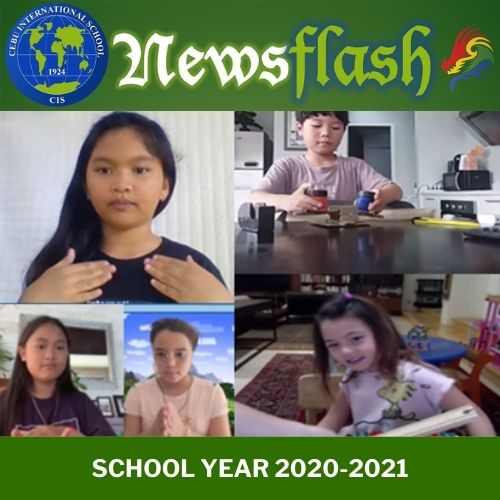
Admin News
by Dr. Gwyn Underwood, Superintendent
Dear CIS Community,
Congratulations Grade 5 students for a successful PYP Exhibition (PYPx) this past Monday! It was great to see the knowledge, skills, and attitudes that you have developed in the PYP confidently demonstrate through your projects and presentations on your selected UN Sustainable Development Goals. A big thanks to Ms. Carolyn Pynor (G5 Class teacher) and all faculty mentors (and parents!) who guided students throughout the process. See the elementary school section below for more information and samples.
“Resilience is not the exception, it is the rule”
Over the past few months, there has been a wide-ranging debate on how much “learning loss” the Covid-19 pandemic has caused. Some commentators paint a gloomy picture of students who are desperately behind in their work, while others have found their students have coped relatively well and are doing fine. The reality is the actual impact will be variable for individual schools, and also between individual students.
The data we have at CIS indicates that, while results vary between individuals, in general, CIS students have continued to learn at, or close to, levels that would be expected even if we were not in a pandemic. Much of the global research on this issue to date suggests that this is the case in most schools that have effective programs in place. We do also appreciate that as a premium international IB World School, CIS is in a position to avoid or overcome many of the challenges less well-resourced schools have faced.
What has changed is how teachers have adapted to facilitate student learning via our remote learning program, and the social-emotional learning (SEL) aspect. This SEL remains a focus for us, as we continue to seek ways to compensate for the loss of face-to-face contact and changed relationship-building capacities that are necessary for students to develop their social intelligence. On a positive note, it is interesting to see that the loss of some aspects of on-campus learning (such as less face-time) has directly or indirectly led to the growth in the development of other skills (such as improved ATL skills like communication and time-management) that have been required for remote learning.
Over the past few weeks, I have been struck by the consistency of messages being given by many reputable educational psychologists. The general message is, while some students have struggled (and we must remember this is a normal phenomenon and an integral part of learning), children are exceptionally resilient and most have adapted to face the situations they are in. I would like to end by sharing a short CNN health video (2min 50sec) by author and psychologist Dr. Angela Duckworth, where she tells Anderson Cooper why she thinks most kids will bounce back from the negative impacts of the pandemic, and that “resilience is not the exception, it is the rule”.
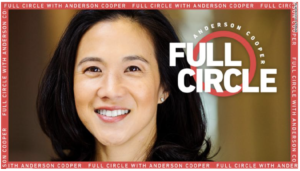 Source: Anderson Cooper, CNN https://edition.cnn.com/videos/health/2021/04/01/author-angela-duckworth-emotional-learning-resilience-kids-pandemic-sot-acfc-vpx.cnn/video/playlists/anderson-cooper-full-circle/
Source: Anderson Cooper, CNN https://edition.cnn.com/videos/health/2021/04/01/author-angela-duckworth-emotional-learning-resilience-kids-pandemic-sot-acfc-vpx.cnn/video/playlists/anderson-cooper-full-circle/
Events and dates
-
- May 10-14: Arts Week
- May 12 (Wed): Eidul Fitr Holiday (*anticipated date, this is still not confirmed!)
- May 14 (Fri): Last day of Semester 2 ASAs (After School Activities)
- May 25 (Tue): Final Parent Coffee meeting for the year at 9-10am (virtual).
- May 26 (Wed): Whole School Celebration of Learning
- May 28 (Fri): Graduation (virtual)
- Refer to our online School Calendar a complete listing of events
Have a wonderful weekend!
Elementary News
by Ms. Maureen Juanson, PYP Coordinator

The 2020-2021 Virtual PYP Exhibition took place on Monday, May 3rd. Through Google Meet, our Grade 5 students presented their PYPx journey to the different members of our learning community. Parents, teachers, and students from both elementary and MHS, attended the sessions to learn about the issues that our Grade 5 students have collaboratively inquired into and the lessons they have learned throughout their exhibition process.
Our Grade 5 students worked in groups to investigate the UN Sustainable Development Goals that they felt most passionate about. Throughout the process, they further developed their understanding of various issues and applied the ATL skills that they have learned throughout their PYP years.
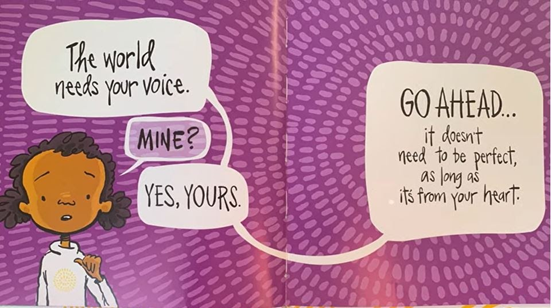
As I read and listened to each of the Grade 5’s PYPx reflections, I was reminded of the book “Say Something” by Peter H. Reynolds. The book talks about how the world needs our voice and how each one of us could do something to change the world through our words, actions,voices and creativity. Through this PYP exhibition, every single one of our Grade 5 students answered this call. They used their words, actions, voices, and creativity to raise awareness and bring attention to the global and local issues that our world is facing today.
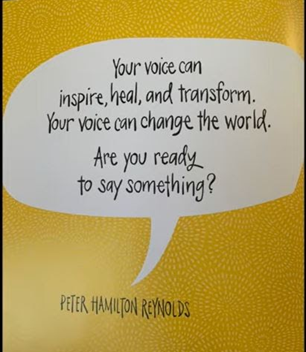 We are extremely proud of their achievement and are amazed at how much they have grown as learners and individuals because of this experience. We are truly grateful to the Grade 5 team- Ms. Carolyn, Ms. Lana, Ms. Freya, and Ms. June, for the leadership and guidance that they have provided to the students. We would also like to express our appreciation to the mentors, and other faculty and community members for providing support, encouragement, and sharing their time and expertise that allowed the students to dig deeper into the issues that they were researching on. This is evidence of how we, as a community, are able to create a collaborative culture that creates a positive impact on our students, our community, and the world.
We are extremely proud of their achievement and are amazed at how much they have grown as learners and individuals because of this experience. We are truly grateful to the Grade 5 team- Ms. Carolyn, Ms. Lana, Ms. Freya, and Ms. June, for the leadership and guidance that they have provided to the students. We would also like to express our appreciation to the mentors, and other faculty and community members for providing support, encouragement, and sharing their time and expertise that allowed the students to dig deeper into the issues that they were researching on. This is evidence of how we, as a community, are able to create a collaborative culture that creates a positive impact on our students, our community, and the world.
If you have not had the chance yet, we invite you to visit the PYPx website to learn about the students’ PYPx research, journey, and action. We hope that their words, actions, voices, and creativity will also inspire you to share your voice to heal and transform the world.
Music
Music in Early Years 2/3
Our youngest learners have been exploring music which connects to families. As part of these inquiries they sang and moved to lullabies.
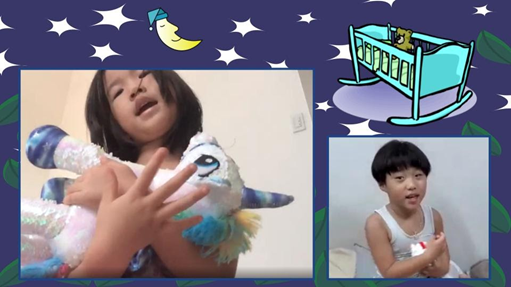
Music in Grades 2 and 3
Grade 2 and 3 students have been continuing to practice their performance skills. Grade 2 have been working on tuned percussion and keyboards and Grade 3 have been working on recorders.
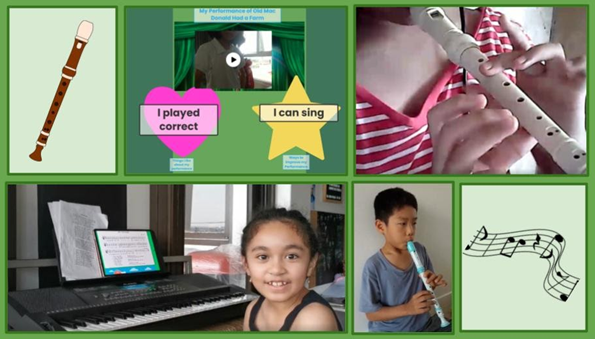
Music in Kinder and Grade 1
Kinder and grade one students have been continuing to hone their singing skills, focussing on solfege.
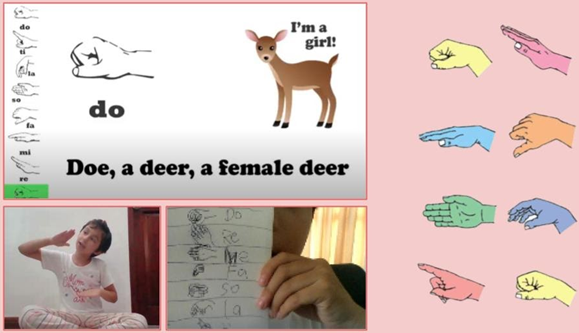
Music in Grades 4 and 5
The students have been exploring form and meter through body percussion. They learned that following a rhythm with body percussion requires coordination, motor timing, and body awareness.
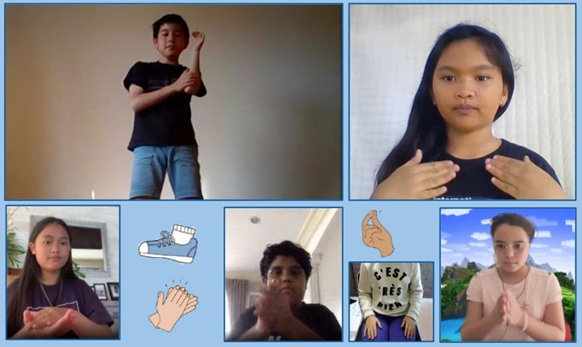
K/G1 News
This past week has been another fun week of inquiry and learning for our KG1 students. As we wrap up our Unit of Inquiry, How the World Works, we look into conditions that cause materials to behave differently and how their properties affect their purpose. Together, we shared ideas on which materials would fit a situation. To show our learning, we did the egg drop challenge. We designed a model to protect a fragile object[egg] from breaking. We learned that there are plenty of materials we can use to protect something precious.
Here are some responses from our KG1 students when asked about what they learned from the egg drop challenge:
- I learned that if you wrap it[egg] a lot, it will stay safe. –Sierra
- Using fluff[pillow stuffing] was not helpful; it made the egg bounce. I changed it to cotton instead. –Erin
- I learned to use strong materials to put together my design. I also learned that my model needs to fit perfectly. If there is an extra space, the egg will bounce. –Ben
- If you drop the egg into a soft, folded blanket it will not break. –Masa
We are continuing to grow as a reader and a writer. We made a Science Journal and documented our learnings there.
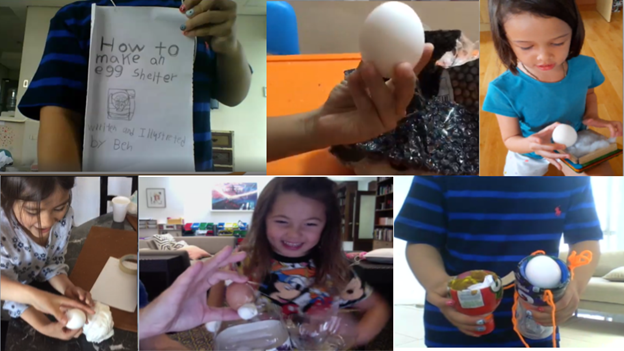
For Math, we made our own Board Game. We made a board game from our favorite math concepts like addition, subtraction, skip counting, and telling the time.
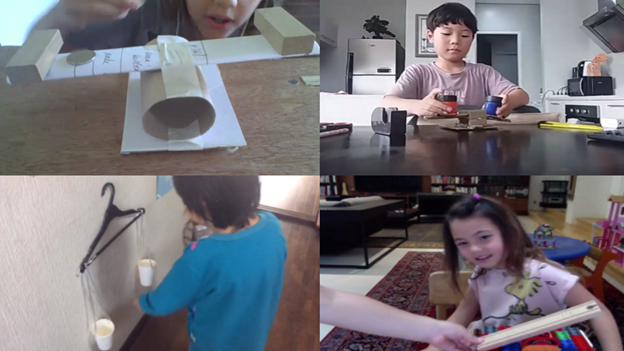
Here are some reflections from making our own balance scale:
- I learned that even though an object is small it can be heavy. For example, metal is heavy like a small padlock. –Erin
- When an object is big it doesn’t mean that it is heavy. For example, a sock is big but it is light. –Sierra
- To make my own balance scale, I used one of my clothes hangers and used some strings and buckets. –Catherine
- Bigger materials usually weigh the most. –Ellaine
Middle and High School News
by Mr. Dale Wood, Middle & High School News
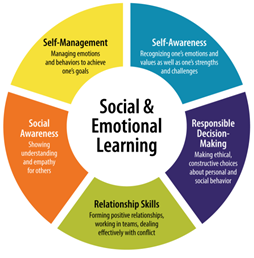
As we draw nearer to completing a full academic year of remote learning, we have repeatedly revisited the importance of the Social and Emotional Learning of our students and maintaining our health and well-being across the entire community. Our school program and curriculum have been intentionally designed to be holistic- from fixtures in our daily schedule like ELO and Homeroom and through emphasis on service learning (even in the midst of the pandemic), Week Without Walls, After School Activities, and other elements which serve to cultivate our students´ development as multi-dimensional human beings.
Within our academic program In MHS we also seek to meet the various and holistic needs of our students; while this is true generally within the student-centered practices our teachers employ within our daily classes, courses like Art, Drama, Music, and PHE directly address the physical, aesthetic, and emotional dimensions of our students.
Celebrating Arts Week
by Mr. Jessie G. Saclo III, Head of Department, Arts and Design
“The arts especially address the idea of aesthetic experience. An aesthetic experience is one in which your senses are operating at their peak; when you’re present in the current moment; when you’re resonating with the excitement of this thing that you’re experiencing; when you are fully alive.” The late Sir Ken Robinson, during his inspiring talk, ‘Changing Education Paradigms’, emphasized the importance of the arts in 21st century education. Similarly, the IB acknowledges the arts as a universal form of human expression, a unique way of knowing and understanding that engage us in effective, creative, imaginative and productive activities.
The PYP, MYP, and DP are frameworks for learning that allow students of the arts to explore their sense of identity and individuality to openly experience opportunities to function as artists as well as learners of the arts. By providing age-appropriate opportunities to holistically develop their social, emotional, intellectual and personal intelligence through the arts, students at CIS learn to create, perform, and present arts in methods that engage as well as convey feelings, experiences, and ideas. Development in the arts is a dynamic process where students practice to acquire new skills and master those skills developed in prior learning.
Thinking creatively is a natural fit in the arts and at CIS students engage in activities through the Arts subjects of drama, music, and visual art where they acquire, learn, refine, and master the skills necessary to develop learning. This year has been practically challenging for our students as they 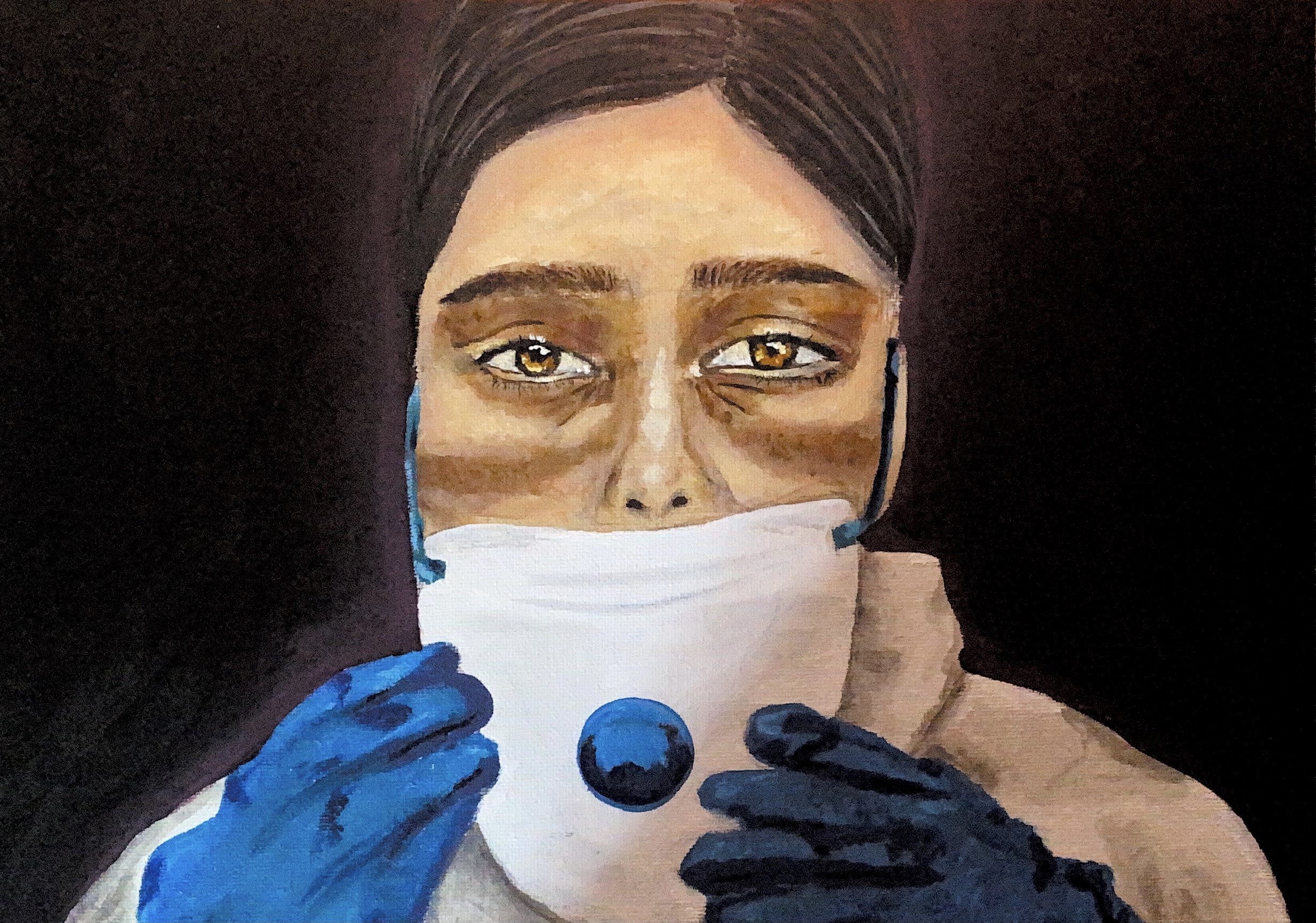 were restricted to online class engagement, may have felt isolation, and had limited access to materials. However, creativity as an essential objective in the arts addresses the need for student-centered learning that leads to innovative strategies in resolving the huge changes happening within education at this turning point.
were restricted to online class engagement, may have felt isolation, and had limited access to materials. However, creativity as an essential objective in the arts addresses the need for student-centered learning that leads to innovative strategies in resolving the huge changes happening within education at this turning point.
The late Sir Ken Robinson couldn’t be more precise in stating that the arts truly address the idea of aesthetic experience as our students have shown through their creative work this entire virtual school year. As teachers we have been astonished to witness our students´ grit, self-expression, skill, and creativity in performing the various tasks required in their arts subjects amidst the challenges of the ongoing pandemic.
We invite you to take part in supporting our students as we launch and celebrate Arts Week, a full week dedicated to celebrating and appreciating the arts, beginning on May 10. Please visit our Arts Week Google Site (which will launch on Monday) where we will feature the creative work of our students in the areas of drama, music, and visual art all week.
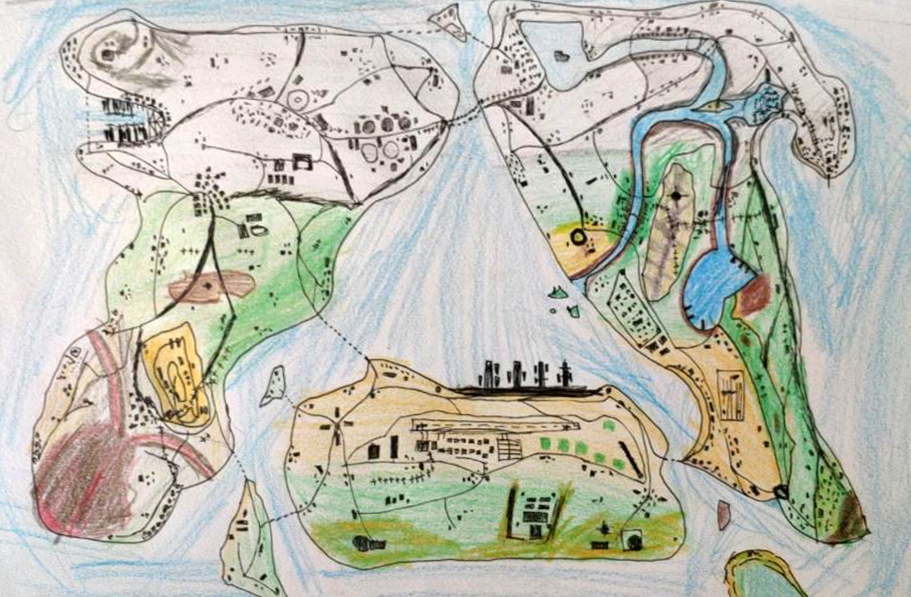
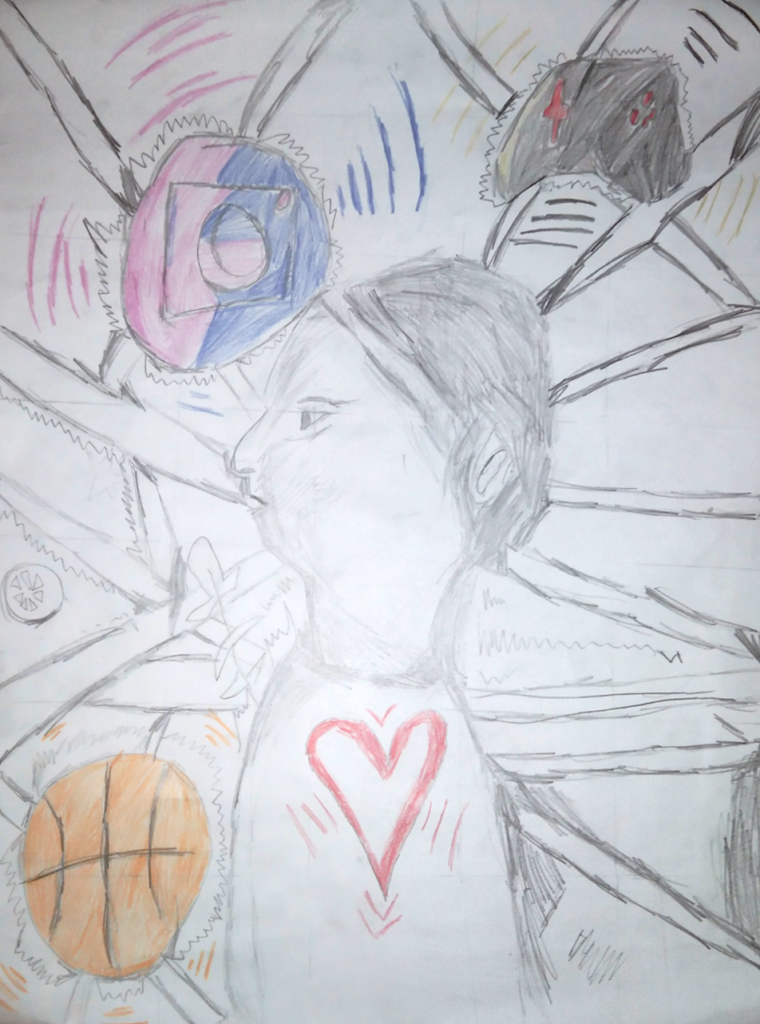
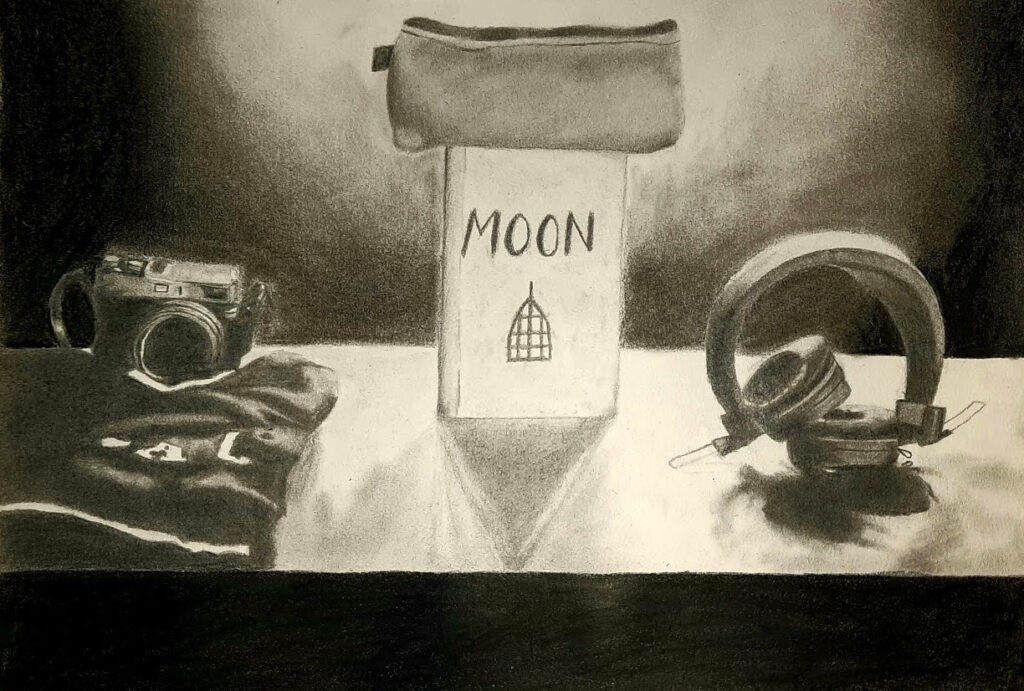
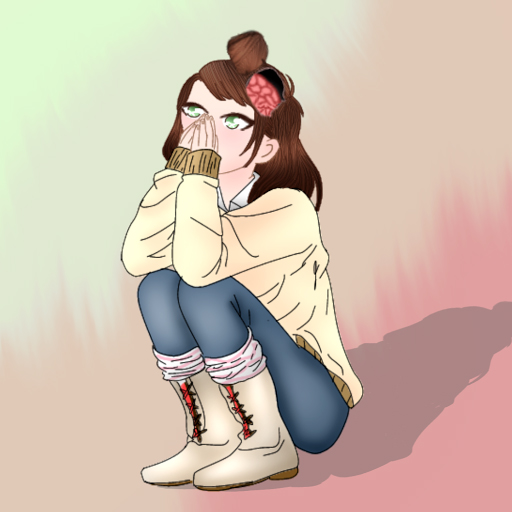
Arts Week 2021
Most arrangements the CIS band students learn are performed only once. They are typically performed for specific occasions, such as International Day, the Ayala Art Exhibition Opening, Arts Week, etc., and are usually archived after that. There is one arrangement, however, that the band students have performed year after year, namely Star Wars. Because of its stately tempo and majestic theme, Star Wars has been a suitable processional for many of our graduation and moving up ceremonies. This familiar tune is easily accessible to band students in the second year of study and is considered a “rite of passage” for CIS band students.
Keeping with tradition, the CIS band students have performed Star Wars once again in a video made specifically for Arts Week 2021. Similar to previous virtual performances, all the parts were recorded separately then synchronized together using video and audio editing software–the new normal for performances in the time of the pandemic. This video features Bryan C. (violin), Deandra R. (alto saxophone ), Esther (flute), Hana K. (trumpet), Jiwoo K. (clarinet), Niño V. (alto saxophone), Roland S. (trumpet), Ron Michael C. (trumpet), Saki M. (trumpet), and Seohyun P. (flute). Look for it in the upcoming Arts Week 2021 website.
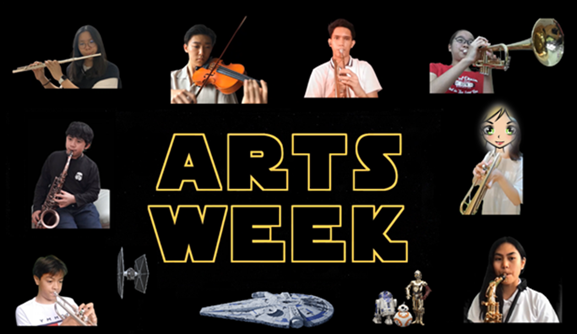
PHE Classes Explore Mood Charts for better Physical and Mental Health
As we continue to provide Physical and Health Education (PHE) through remote learning, the PHE department deemed it also important to consider the student’s mental health as they go through a very challenging time in their academic life.
In one of our current units entitled Happy Hormones – our aim was to consider the effects of physical exercise on the students’ mental health and one way for them to accomplish this is to use a Daily Calendar or a Mood Chart wherein each day they add an emoji for the morning and afternoon that reflects their mood and energy level or for higher levels, write a short statement of how they felt during these times. Additionally, they plan two (2) quick 20-/30-minute workout sessions within the week but outside our PHE synchronous blocks and plot these in the same calendar.
In the latter part of the unit, they used these data to analyze how their mood was affected on days when they had a quick workout versus those which they haven’t done one. When the unit ends this semester, they will be then tasked to evaluate what they did to improve your health and skill related fitness and evaluate what effect physical exercise had on their physical and mental health.
This task was considered to help students cope with academic work through spurts of physical activities that could produce ‘happy hormones’ which, hopefully, would give them a boost when dealing with academic tasks. We believe that when it comes to personal well-being, one’s mood plays an important role in determining energy levels, where attention is focused, and what actions are taken.
One study suggested that: “when participants were in a happy mood, they processed information more globally compared to when they were in a sad mood.” (Schmid, Mast, Bombari, Mast and Lobmaier, 2011) “ This study shows that, when individuals are more positive, they gather more information from the outside world. With more information, people can make better and more clear choices, which is always a good thing. Furthermore, psychologists define mood as a number of persistent feelings that accompany our perception and evaluation of incoming stimuli. Mood has a huge influence on the way we react, specifically in the actions we take and the feelings that get created throughout that process. (Amado-Boccara, Donnet, and Olie, 1993).
With enough data and information from the students’ Daily Calendar, a pattern of the highs and lows can be identified, as well as the factors that may have caused them. This tool is handy for those who may want to be more optimistic and be mindful of how their daily mood affects their work in school – hopefully for the better.
Here are sample mood charts from our students:
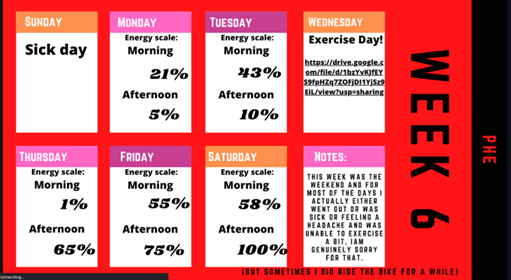
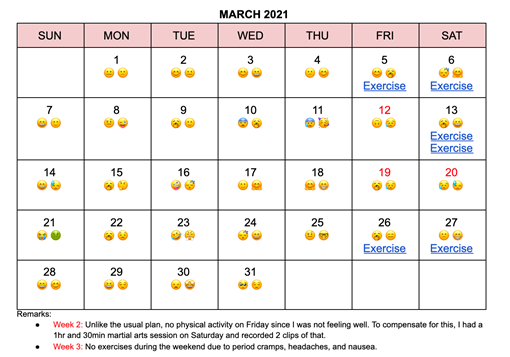
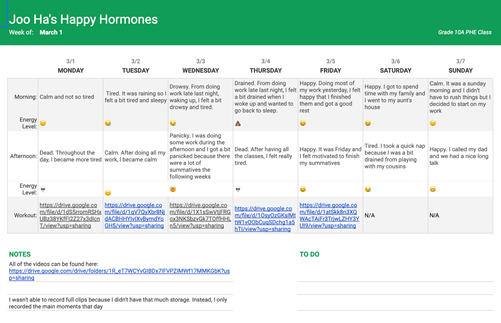
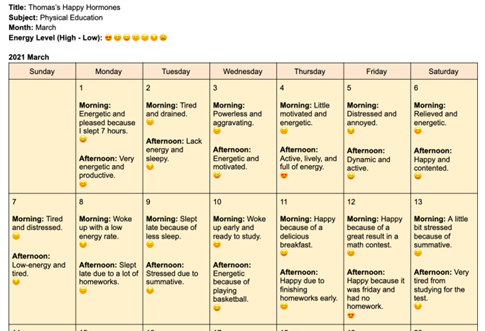
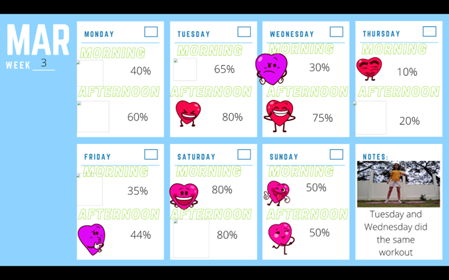
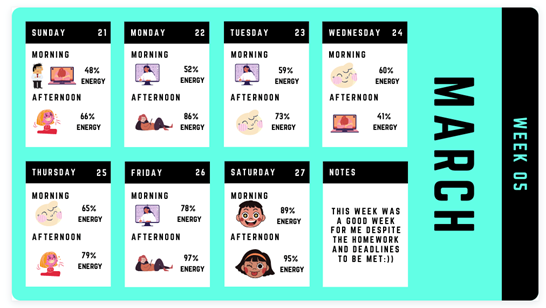
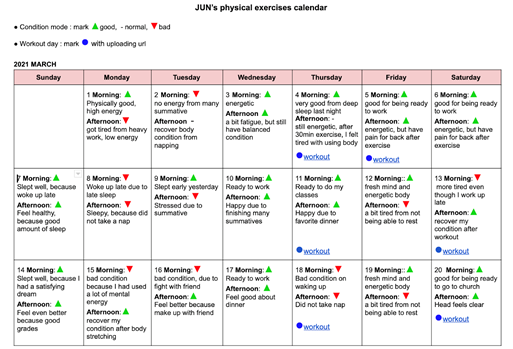
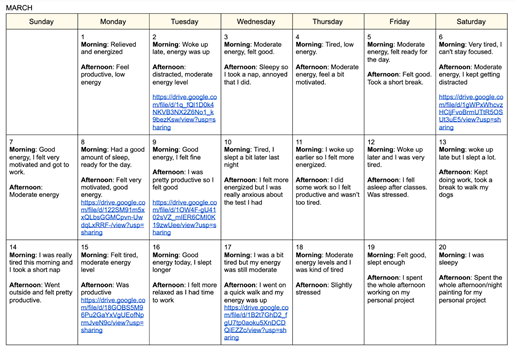
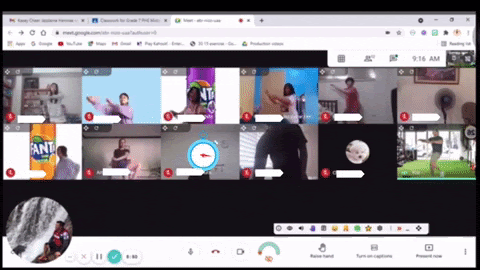
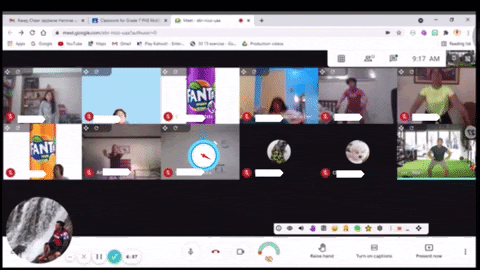
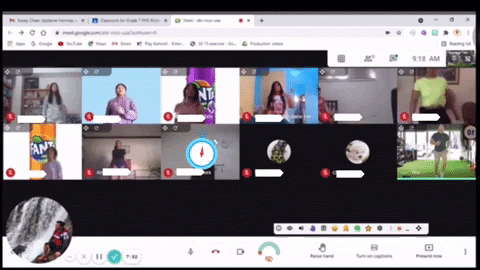
Dragon’s Print
Throughout the quarantine, artists have been able to work on their music, gifting us with plenty of fresh beats and incredible songs. A variety of albums have recently come out, and Dragon’s Print has put together its go-to recommendations for you to enjoy. Read the latest article to find some new artists and songs to listen to at https://dragonsprint.cis.
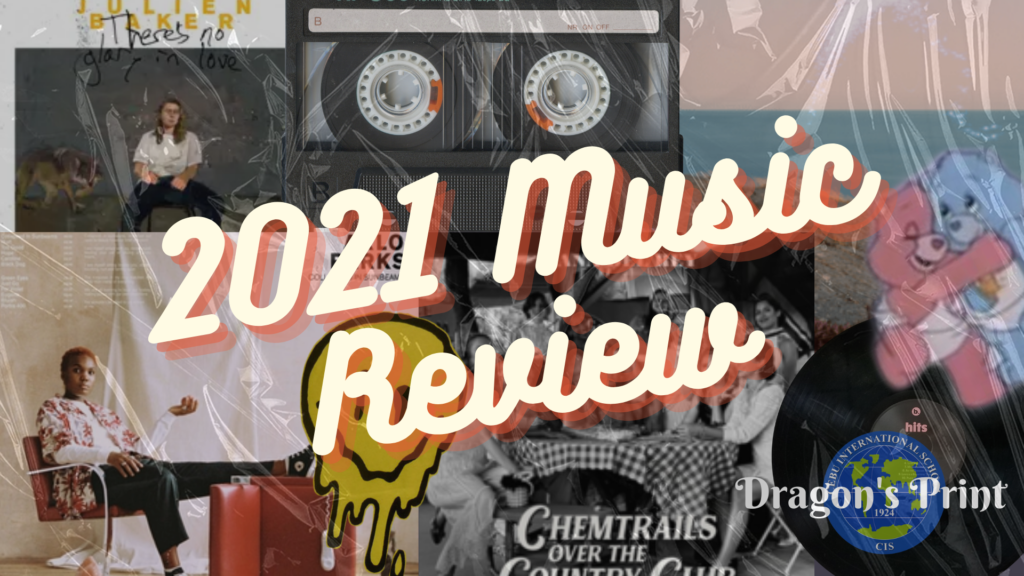
College/Careers Counselor Corner
by Ms. Jenny Basa, College/Careers Counselor
Common App Essay Prompts 2021-22
For the current 11th graders who are planning to apply to an institution via the CommonApp next school year, it is highly recommended that you start planning for your college essay and work on it over the summer. Please note that some institutions may have an additional (supplemental) essay to submit an application. To find out if a college is under the CommonApp, please click this Link.
Below is the full set of Common App essay prompts for 2021-2022.
(minimum: 250 words, maximum: 650 words)
- Some students have a background, identity, interest, or talent that is so meaningful they believe their application would be incomplete without it. If this sounds like you, then please share your story.
- The lessons we take from obstacles we encounter can be fundamental to later success. Recount a time when you faced a challenge, setback, or failure. How did it affect you, and what did you learn from the experience?
- Reflect on a time when you questioned or challenged a belief or idea. What prompted your thinking? What was the outcome?
- Reflect on something that someone has done for you that has made you happy or thankful in a surprising way. How has this gratitude affected or motivated you?
- Discuss an accomplishment, event, or realization that sparked a period of personal growth and a new understanding of yourself or others.
- Describe a topic, idea, or concept you find so engaging that it makes you lose all track of time. Why does it captivate you? What or who do you turn to when you want to learn more?
- Share an essay on any topic of your choice. It can be one you’ve already written, one that responds to a different prompt, or one of your own design.
Upcoming Virtual Events and Fairs: (students & parents are welcome)
DATE
May 11 Tuesday
6:00 PM
EVENT (IDP Webinar Series)
Ecole hôtelière de Lausanne (Switzerland)
Learn about the EHL Junior Academy Programme:
- Hospitality in a digital world (100% Online)
- Hospitality Business & Innovation (EHL Campus Lausanne)
- Culinary Experience (EHL Campus Passugg)
- International Hospitality & Luxury Brand Management (EHL Campus (Singapore)
LINK to register
May 13 Thursday
7:00AM – 8:00AM
Duke Kunshan University (China)
Virtual Info Session: LINK to register for May 13 or pick a date/time from this LINK if the schedule doesn’t work for you.
Learn about:
- Their unique academic model
- The connection to Duke University
- Merit Scholarships & Need-Based Financial Aid
- Interdisciplinary Majors
- How to Apply
May 18 Tuesday
6:30PM

| 2020-2021 Test Dates | Test | Registration Deadline |
| June 5, 2021 | SAT & SAT Subject Tests (an update will be announced next week if this test will be cancelled) | May 6, 2021 |
If you need assistance or have any questions, please feel free to email Ms. Jenny Basa at jbasa@cis.edu.ph.



